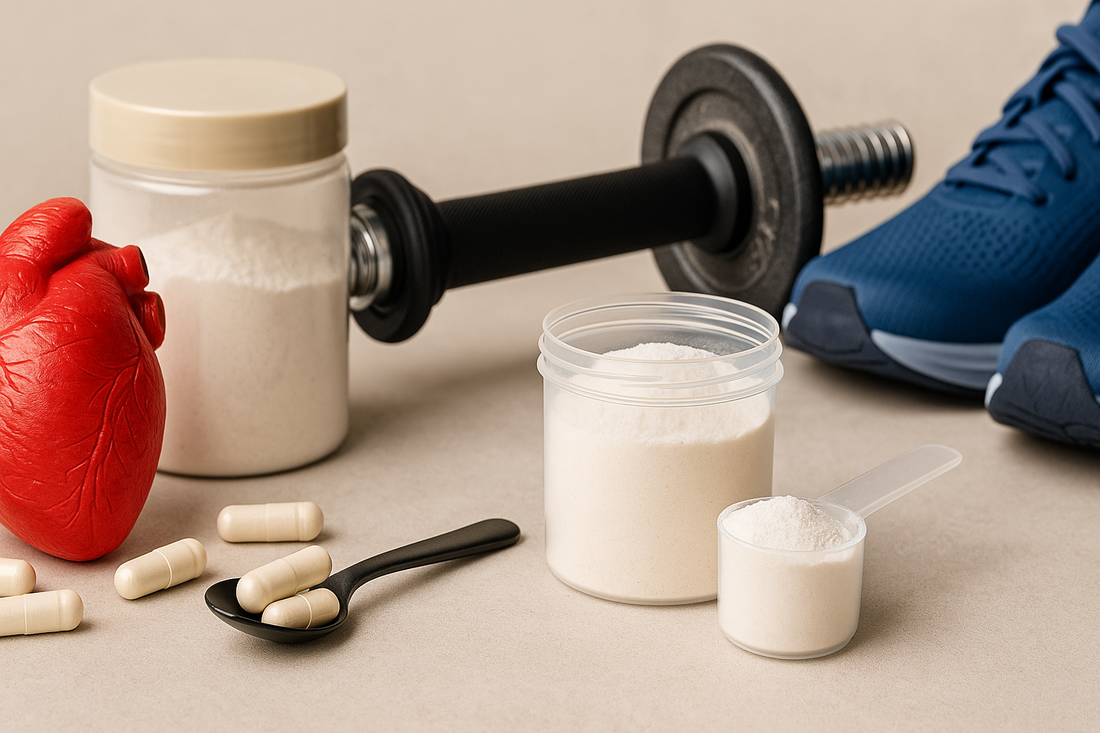
L-Arginine vs Beta-Alanine: which amino acid for your goals?
Share
The world of sports supplements is a vast subject, but two amino acids in particular stand out. L-Arginine and Beta-Alanine have different mechanisms of action. Understanding their differences is essential if you are to take the right supplement for your physical activity.
L-Arginine promotes oxygen supply
L-Arginine relaxes muscles and blood vessels , improving blood circulation. This vasodilatation translates into increased blood flow to muscles during exercise, boosting oxygen and nutrient supply while facilitating the evacuation of metabolic waste products.
The famous "pump" felt during bodybuilding training is a direct result of this mechanism. Because everyone produces waste products simply by breathing, known as free radicals.
These elements accumulate according to lifestyle. Excesses such as smoking, alcohol and an unbalanced diet can amplify the accumulation of radicals and impact the response to effort.
Beta-Alanine for muscle support
Beta-Alanine works in a different way: once absorbed by the digestive system, it reaches the muscle directly. It then combines with another molecule called histidine to form carnosine. Carnosine acts as a buffer, helping to regulate acidity in the muscles during exercise.
During intense exercise, the body produces acidic waste products (such as H⁺ ions) that make muscles more acidic. This is what causes the famous muscle burning sensation and limits performance. Carnosine helps neutralize this acidity, allowing muscles to keep working longer without tiring too quickly.
Which amino acid is right for your sporting activity?
Strength sports and muscular hypertrophy
For bodybuilding, you can opt for L-Arginine for its vasodilatory capacity, which improves muscle nutrition and the evacuation of metabolic waste.
It will support muscle recovery between each series of exercises such as training, pull-ups and muscle strengthening. The pump effect that drains the muscles will be intensified by L-Arginine, and may intensify motivation and mental strength so as not to give up too quickly.
Endurance and prolonged effort sports
Beta-Alanine is not particularly relevant for strength or short-duration efforts, as its buffering action is only triggered in the presence of muscle acidosis linked to moderate but long-term activity.
Beta-Alanine is most effective for endurance activities such as running, cycling, hiking or trail running. This amino acid helps maintain a sustained pace over time by neutralizing the muscle acidity that builds up during exercise. It's also a good element for Crossfit to reduce muscle fatigue felt during repeated exercise.
How do I choose between L-Arginine and Beta-Alanine?
The choice between these two amino acid supplements essentially depends on your training objectives and the type of exertion you practice. L-Arginine is ideal for body-builders looking for a "pump" effect to improve blood flow to the muscles they work.
The L-Arginine in sport is also interesting for beginners who want to feel the benefits of their workout. But also for those new to muscle building who want to control their oxygen intake to stay motivated throughout their session.
Conversely, Beta-Alanine is the reference choice for those involved in intermittent sports such as CrossFit, or long-distance activities like running or cycling. Its effectiveness is felt over efforts of 1 to 4 minutes to delay the sensation of muscle burn.
Unlike L-Arginine, which will have immediate effects, Beta-Alanine requires patience and regularity, with benefits appearing after 2 to 4 weeks of continuous supplementation.
How do I take my amino acid for sport?
To maximize results, it's best to follow the recommended instructions and adapt doses according to your sporting habits.
For L-Arginine
The recommended amount is 3 g/day maximum. Except for advanced athletes, who can take up to 6 g on intensive training days. Take 60 to 90 minutes before exercise. Its absorption is sensitive to the presence of other nutrients, so take it on an empty stomach to avoid interference with other amino acids, which could cancel out its effects.
For regular athletes, a daily intake of 3 g for 3 training sessions a week would be an excellent option. A stable blood system is highly recommended.
For Beta-Alanine
The recommended dose should be taken continuously, as daily supplementation enables muscle carnosine levels to be gradually increased. The correct dosage is between 3 and 6 g per day, with the possibility of a loading phase of 6 to 10 g per day over 2 weeks during the competition period.
Beta-Alanine may cause tingling in the limbs, so it is advisable to divide the quantity into several small doses throughout the day. For example: in 3-4 doses of 0.8-1.5 g, spaced 3-4 hours apart.
The tingling sensation is a harmless side effect which indicates that beta-alanine is being absorbed into the body.
